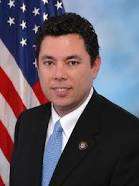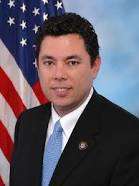Jason Chaffetz Reintroduces Adelson-Backed RAWA Bill
US Representative Jason Chaffetz (R-Utah) has reintroduced the Restoration of America’s Wire Act (RAWA) bill into the US House of Representatives, following through on the latest iteration of casino mogul Sheldon Adelson to “spend whatever it takes” to attempt to ban all US-based Internet competition to his land-based casino entertainment.
The latest iteration of the misnamed RAWA measure appears to be identical to last year’s RAWA bill, which was first introduced last year but failed to advance from committee during Congress’s lame-duck session. Seven other Representatives have signed on as co-sponsors, a number slightly down from the 2014 version of the same bill.
The bill is expected to immediately be assigned to the Judiciary Committee, of which Chaffetz himself is a member. Adelson, the billionaire CEO of Las Vegas Sands Corp. recently visited Washington D.C. to wine and dine (and perhaps spend millions) on select GOP members of the Judiciary Committee, including Chaffetz, in an attempt to help his RAWA bill clear its first Congressional hurdle.
US Senator Lindsey Graham (R-SC), who sponsored the Senate’s version of the 2014 RAWA, is expected to follow suit and reintroduce RAWA there in the near future.
The RAWA act claims to be a reactivation of the bans supposedly inherent in the 1961 Wire Act, but actually atttempts to stamp out all forms of Internet-based gambling. Those activities include sports betting, online poker, online casino games, fantasy sports, and other activities. The Wire Act was clarified in late 2011 by US Attorney General Eric Holder and applies only to sports betting, and not to these other gambling forms.
Whether RAWA can generate significant steam in the face of broad-based opposition remains to be seen. The bill and Adelson’s deep-pocket efforts to buy business-protecting legislation have been blasted in many recent mainstream reports as the worst form of “crony capitalism.” Adelson has already admitted to willfully attempting to usurp the American political process by spending in support of his pet projects and candidates.
In the 2014 election cycle alone, Adelson and his companies donated more than $90 million to GOP coffers, and his total political spending over the last decade may approach a quarter billion dollars. The staggering outlay has still managed only mixed results. The tens of millions Adelson frittered away on GOP presidential candidates Newt Gingrich and Mitt Romney, for example, served little final effect.
RAWA’s fate is uncertain, though its attempt to usurp traditional states’ rights over gambling matters will keep the issue in the mainstream. Among other effects, RAWA if passed, would obliterate the three fledgling state-level online gambling markets already established in the US, in Nevada, New Jersey and Delaware.
The Poker Players Alliance quickly issued a statement slamming Chaffetz’s reintroduction of RAWA, including many of the talking points already mentioned. Here’s the PPA’s slam on Chaffetz and his benefactor, Adelson:
PPA Questions Motives Behind Reintroduction of Prohibition Bill to Overturn States Rights to Regulate Online Poker
Washington, DC (February 4, 2014) –The Poker Players Alliance (PPA), the leading poker grassrootsadvocacy group with more than one million members nationwide, today condemns the reintroduction of legislation introduced by Representative Jason Chaffetz (R-Utah) to ban state legislatures from authorizing and regulating internet poker and other forms of internet betting across the US.
“Every Congress to consider internet gaming legislation has preserved the right of states to protect its citizens through a system that is accountable to regulators and the government,* said John Pappas, executive director of the PPA. “Attempting to rewrite history through a piece of legislation that prohibits states from enacting these safeguards represents the worst kind of crony capitalism that favors a mega political campaign donor over what’s in the best interest of the states and their consumers.*
In 2006 Congress passed, and President George W. Bush signed into law, the Unlawful Internet Gambling Enforcement Act (UIGEA), which makes a clear exemption for regulated “INTRAstate” online gaming. The legislation introduced by Representative Chaffetz would undo what Congress and the President have already authorized and strip states of their 10th Amendment right to regulate online poker sites within their own borders, including the online poker markets already established in Nevada, New Jersey and Delaware.
“Despite outrageous claims made by opponents of state-regulated Internet gaming, it has not led to the downfall of Western society. In fact, to date there has not been a single documented case of a minor playing on any of these state regulated sites and no report of people wagering on a regulated website that is not authorized in their state. Finally, claims that regulated Internet gaming is a conduit for money laundering and terrorist financing are completely false and have no backing in the real world. At best these claims are fear-mongering, at worst they are outright deception,” said Pappas.
“As the states are proving they can effectively regulate Internet poker and contribute to the economy by doing so, one might question the motives behind stopping such success. Americans are going to continue playing poker online, and with absolutely no consumer protections under a prohibition. If Congress is serious about protecting consumers, prohibiting states from implementing a sound regulatory framework is certainly not the answer,* added Pappas.





















COMMENTS